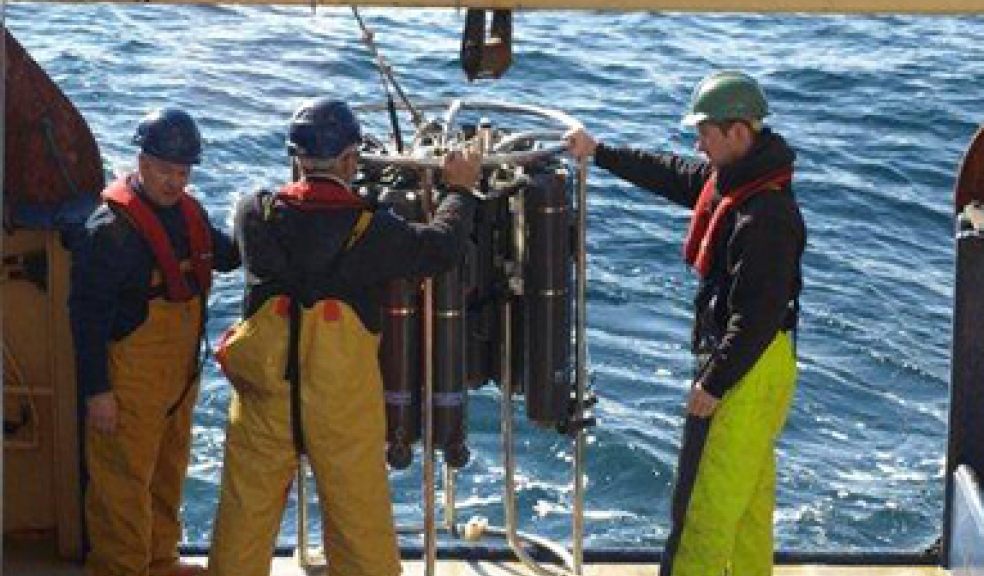
Exeter Impact Awards Focus: CBCS
The Centre for Business and Climate Solutions (CBCS): catalysing environmental technology, service and process development and implementation for a sustainable future”
The research was led by Rebecca Adams and the CBCS Team supported by Project Partners Met Office, IBM, PML, and RegenSW
Co-funded by the University of Exeter (UNEXE) and the European Regional Development Fund (ERDF), with partners including the Met Office, IBM, PML and RegenSW, the Centre for Business and Climate Solutions (CBCS) assists the South West’s small to medium enterprises (SMEs) in understanding impacts of climate change and in developing solutions to tackle impacts through innovation, mitigation and adaptation.
To date, CBCS has assisted over 60 SMEs in developing or implementing environmental technologies, services and processes. This will have a long-term impact not only for their business, but also for the environment and society as a whole.
The research builds on past and present research undertaken by UNEXE and partners, enabling SMEs to understand impacts of climate change (extreme weather, lower water availability, flooding, ocean acidification, lower food availability) and to develop solutions to tackle such impacts.
CBCS assists businesses in the tourism, energy, water & marine, construction and environmental technology sectors to provide bespoke assistance to innovative new start-ups developing unique products and services.
These will benefit society and the environment by mitigating climate impacts (e.g. reducing carbon emissions) or enabling adaptation to climate impacts (e.g. making buildings more sustainable or by exploiting renewable sources of energy and water). SMEs and projects include:
• Nearest Star – assessing the feasibility of their solar energy collector.
• Papa Pump – modelling the use of their energy-free pump for water supply and urban drainage applications.
• FlushRain – appraising the residential market potential for their gravity-based rainwater harvesting system.
• WITT Energy – testing (at sea!) their device for turning chaotic movement into energy.
• GreenDesk – enhancing their software platform by providing information on rainwater harvesting system tank sizing.
These projects have enabled the businesses to bring their products and services closer to market or reach wider markets, yielding significant economic benefits, such as royalties from IP licencing and present and future global product and service sales.
CBCS has also enabled SMEs to improve their environmental credentials and commercial competitiveness, by advising on improvements to their business processes to become more water, energy, transport, waste and thus carbon efficient – as well as saving money.
The CBCS team works with over a dozen internal and external academics and practitioners across the projects’ external partners (Met Office, IBM, PML and RegenSW), ensuring the SMEs have access to the latest research and thinking for their sector, as well as the best opportunities for wider collaboration.
The Centre has also built strong relationships with Exeter City Council, local Chambers of Commerce (Exeter, Plymouth, Taunton, Bristol), solicitors and chartered accountants and other ERDF co-funded projects at the Universities of Wolverhampton, the West of England and Nottingham.
To date, CBCS has engaged with over 150 SMEs and assisted over 60 in developing or implementing environmental technologies, services and processes, such as those outlined above. With strong input from CBCS and collaboration with other UNEXE departments, such as RKT.
Although regional by nature, CBCS’s work stretches beyond the geographical boundaries of the South West, bringing regional SMEs into the national and, in some cases, international arena, whereby they can maximise benefits and help work toward a sustainable future for all. :
The Centre for Business and Climate Solutions project is part financed by the European Regional Development Fund Programme 2007 to 2013. The Department for Communities and Local Government is the managing authority for the European Regional Development Fund Programme, which is one of the funds established by the European Commission to help local areas stimulate their economic development by investing in projects which will support local businesses and create jobs. For more information visit www.communities.gov.uk/erdf





















